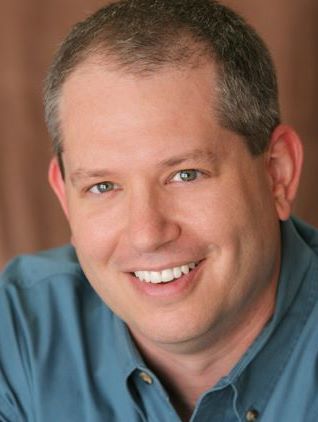|
The Music Of Voice Acting:
Hear & Feel The Script's Song
 By John McLain By John McLainVoice Actor & Musician
One of my regular rituals as I start my day each morning is making music. I have one of my guitars next to my nightstand. My piano is just around the corner in the den.
Making music is a big part of how I wake up. Itís my way of getting my creative juices flowing each day.
I learned to read music as a small child, but as I matured as a musician, I began to see that thereís more to music than playing or singing notes on a page. A lot more.
RECREATE EMOTION
The process of "making musicĒ is immensely intimate and creative.
Itís really about getting inside the head - or really the heart - of the composer. Trying to tune into his or her muse.
Indeed, the notes themselves become almost secondary to me. Recreating emotion takes center stage.
WHERE IT TAKES YOU
One of my best friends in the world is Dr. Scott Ferrell.
Scott is a gifted musician, conductor, and teacher in Texas. I studied choral music and theatrical performance with Scott and learned so much about this process.
Scott is one of the most passionate and emotional men I have ever met.
Heís willing to open himself to the art in front of him, drinking in all of the musical subtext that the composer injected straight from the heart.
He taught me about "honoring the art first, rather than just banging out notes.Ē
I saw his ability to strip away everything else around him - contaminants that would interfere with the performance - and be completely vulnerable to where the music would take him as a performer.
THE VOICE OVER SCRIPT
In voice acting, the same process applies.
While Iíve never had a client deliver a script to me with actual musical notes on the page, I see them.
They are there, underneath. Because when writers sit down to the task of communicating their message in text, they also included emotion, color, mood, flow, tempo, and more.
MUSICAL PROSE
In the Bible, the Psalms were originally written to be sung. When they are, they take on a whole new depth of meaning.
The work of William Shakespeare is undeniably musical.
We do the same thing without even knowing it when we communicate verbally. When Iím talking on the phone and someone says those often-heard two words, "Iím fine,Ē itís immediately obvious to me whether they really are or not.
FIND SCRIPT'S MUSIC
When I approach the task of voice acting, my natural tendency is to find the music underneath.
Tempo, crescendos and decrescendos, staccatos and legatos, swells and troughs, ebbs and flows.
Iím not embarrassed to confess that sometimes Iíll actually stand there in the booth and sing it. How would I sing this script if it was a song?
Because the truth is - it IS a song.
This exercise can help you find the "juiceĒ that the writer had when it was written. And thatís the goal of a truly great acting performance, voice or otherwise.
Allow yourself to go there. Regardless of your own musical background or ability, you have the music in you.
ABOUT JOHN ...
John McLain has been a full-time professional voice actor for two years, following a successful career in broadcasting spanning almost two decades. He is a graduate of the Braintracks Audio curriculum, created and taught by Los Angeles voice over coach Nancy Wolfson. He has also studied audiobook narration with actor and teacher Patrick Fraley. This fall he plans to continue audiobook studies with New York director / producer Paul Ruben. He is also a stage actor and life-long garage musician and songwriter. Most recently he narrated audiobook titles for Oasis Audio and Steerforth Press, and voiced commercially for Sonic and Mercedes-Benz. He and his wife Jan live in Phoenix.
|
Tell Us What YOU Think!
Please Note: Since we check for spam, there will be a slight delay in the actual posting of your comment.
Comments
No comments have been posted yet. Hurry, and you could be the first!






.png)



click for new article alerts